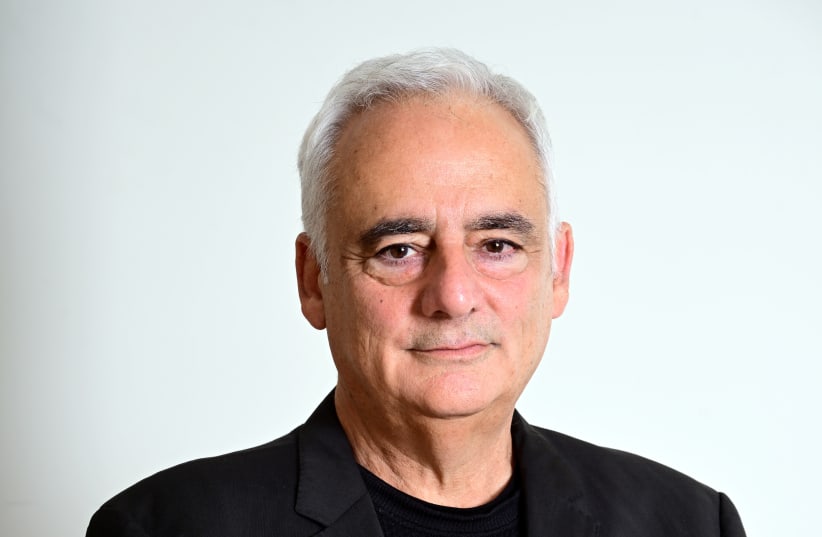The Institute for the Study of Global Antisemitism and Policy (ISGAP) released a comprehensive report on Monday that sheds light on the rise of antisemitism, anti-democratic ideologies, anti-Americanism, and intimidation tactics at Columbia University. The release of the report comes amidst a backdrop of massive and consistent antisemitic protests at Columbia University since the October 7 massacre carried out by the Hamas terror group.
The report, titled “Columbia University: From the Classroom to the Campus - The Normalization of Antisemitism, Anti-Democratic Politics, Marginalization, and Intimidation,” exposes how Columbia University has become a breeding ground for extremism, where members of the university openly advocate for violence against Israel and Jewish students and faculty. The findings of the ISGAP Report demonstrate that support for terror at Columbia goes beyond mere rhetoric in the classroom and the encampment and is, in fact, a dangerous ideology taking root within the halls of academia, threatening the safety and well-being of Jewish students and faculty, and stifles the principles of academic freedom and diversity.
A significant portion of the report focuses on the intellectual support for antisemitism at Columbia University. Prominent faculty members such as Edward Said, Rashid Khalidi, Joseph Massad, Kayum Ahmed, and others have been instrumental in fostering an environment that demonizes Israel and the Jewish people. This discourse, initially prevalent in Middle East studies, has permeated into the social sciences and humanities, influencing antisemitic rhetoric and activities on campus.
Following the October 7 Hamas attacks in southern Israel, over 100 Columbia faculty members endorsed the student group Students for Justice in Palestine (SJP), which publicly aligned itself with Hamas. The report explores how this endorsement included defending the attack as a legitimate response to the occupation. Notably, Columbia Professor Joseph Massad described the October 7 attack as “awesome” and “astounding,” reinforcing his long-standing views against the existence of the Jewish state and his antisemitic worldview.
More on the ISGAP report on SJP can be read here:
https://isgap.org/wp-content/uploads/2024/05/Student_Justice_Palestine_Report.pdf
The ISGAP report also details how Jewish students and staff at Columbia have reported a significant increase in antisemitic hostility since October 7, 2023. This hostile environment includes physical assaults, harassment, and pervasive hate speech. In response, legal actions have been taken, including a Title VI Civil Rights Act lawsuit filed in February 2024, alleging severe and pervasive antisemitism on campus. On April 17, the House Committee on Education and the Workforce held a Congressional hearing to investigate Columbia University’s “failure to... protect Jewish students” amid an explosion of on-campus antisemitism following October 7.
The report also exposes the insidious influence of foreign funding, primarily from Qatar, on Columbia University. Despite legal obligations, the university has failed to disclose significant Qatari funds to the Department of Education (DOE). Crucially, the report uncovers the extent of Qatar’s financial contributions and their role in fostering antisemitic discourse, anti-democratic values, and support for terrorism within the university.
Dr. Charles Asher Small, Executive Director of ISGAP, said, “The revelations in the ISGAP report highlight a troubling trend of growing antisemitism and extremism at one of the elite American universities. The normalization of hate and support for terrorism within Columbia University’s academic and social environment is not only an affront to American democratic values but poses a direct threat to the principles of academic freedom, safety, and diversity that should define our higher education institutions. The unchecked influence of foreign funding, particularly from sources like Qatar, exacerbates this problem, embedding antisemitic and anti-democratic values into the fabric of the university. Columbia University must be held accountable for its failure to disclose these foreign funds and for allowing an environment where Jewish students and staff feel unsafe and marginalized. Immediate and transparent action is required to rectify these issues and ensure that Columbia University reclaims its role as a place of inclusive and respectful academic discourse.
In response to the findings, ISGAP has put forward a series of policy recommendations aimed at promoting transparency, safeguarding academic integrity, and combating foreign influence on university campuses. These recommendations include calling for federal investigations into non-reporting of foreign donations, banning SJP/NSJP, and enacting transparency laws to ensure full disclosure of foreign funding.
ISGAP urges stakeholders to take decisive action to uphold the principles of academic freedom, diversity, and tolerance on college campuses.
